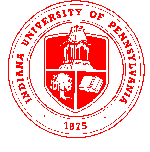
Dr. Alicia V. LinzeyProfessor of BiologyIndiana Univ. of PA |

Dr. Alicia V. LinzeyProfessor of BiologyIndiana Univ. of PA |
|
|
|
B.S. - 1964 Cornell University, Ithaca, NY Major: Vertebrate Zoology M.S. - 1965 Cornell University, Ithaca, NY Major: Vertebrate Zoology / Mammalogy Ph.D. - 1982 Virginia Tech University, Blacksburg, VA Major: Biology / Ecology |